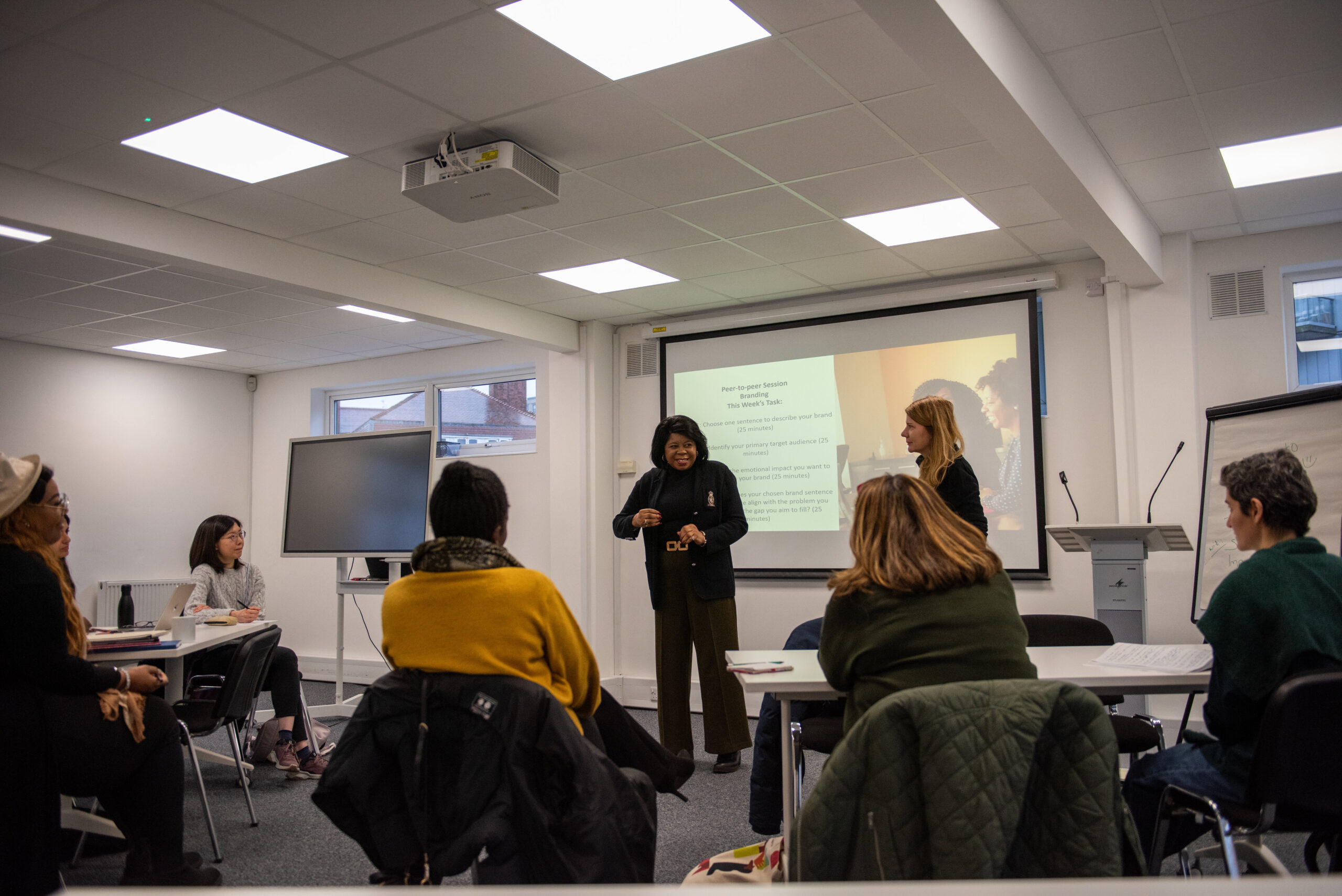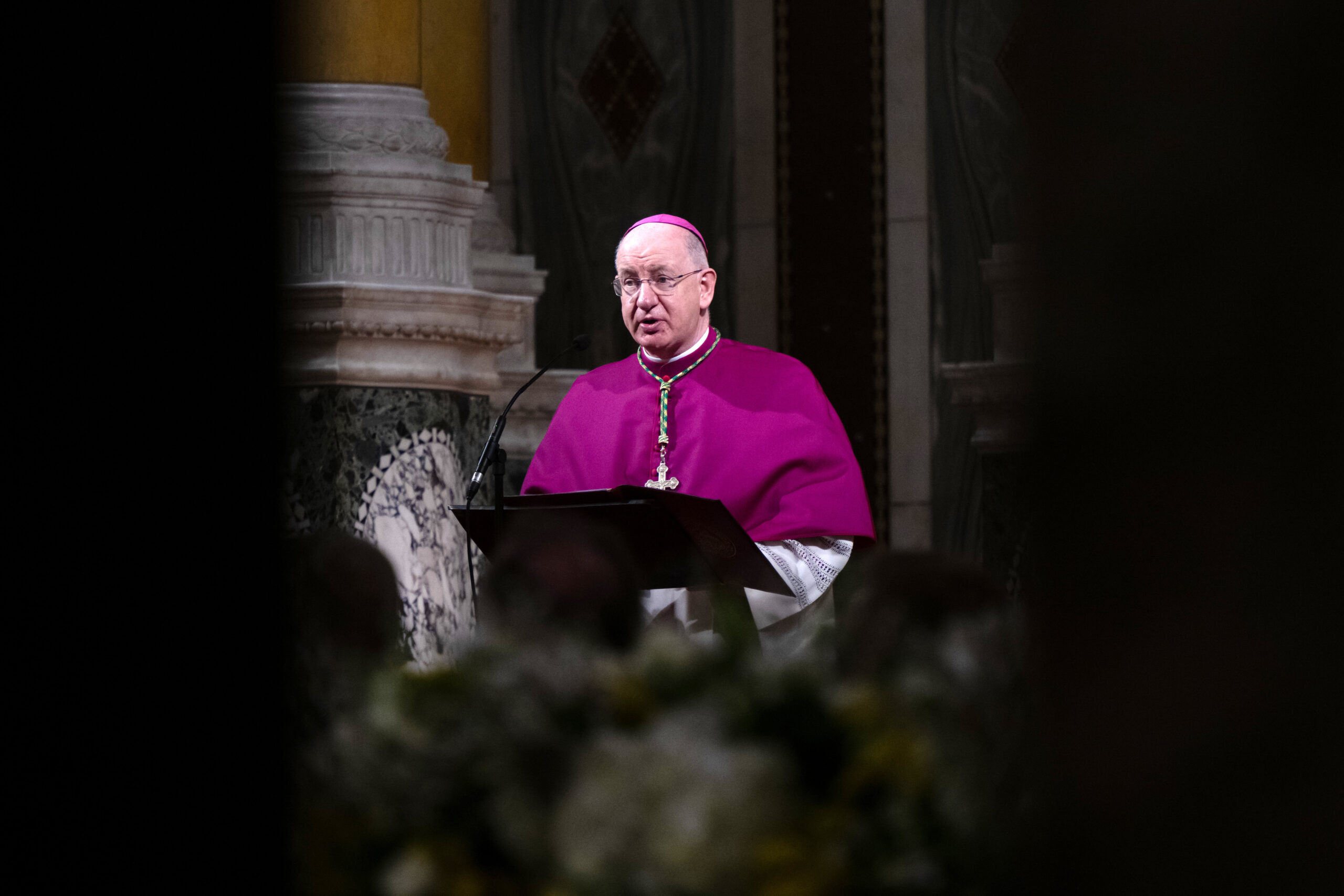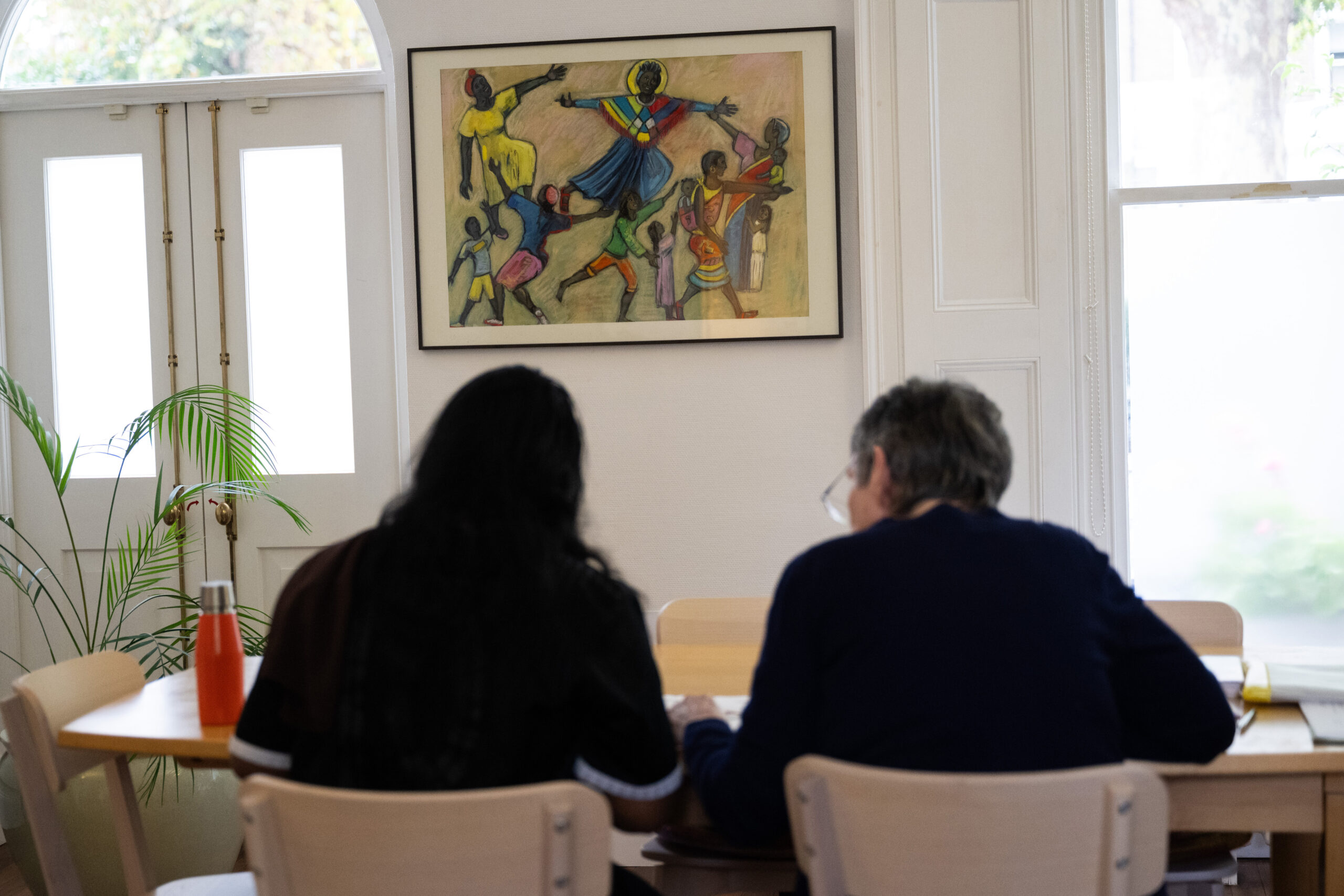By Ann Stirling
On 22 September a team from Caritas Westminster and a small group of volunteers set off to Calais to visit Maria Skobtsova House, a hospitality house run by Brother Johannes Maertens that seeks to help the most vulnerable inhabitants of “The Jungle”.
On arrival, Brother Johannes and his team of volunteers warmly welcomed us. After unpacking the van that had been brimming with donations, we went inside to hear more about the work that they do and the issues they were facing.
There are normally around 10-12 residents in Maria Skobtsova House. The majority of the live-in volunteers are refugees themselves, former inhabitants of the Jungle who have applied for asylum in France. Together they seek out the most vulnerable in the camp and offer support, companionship, and a safe shelter at the house to those who are on the periphery of life. They visit those who may be isolated in hospital, or look after those who may have suffered physical or mental trauma and who cannot access aid. They are a respected and safe presence in the camp.
Brother Johannes told us that without any concrete solutions to the current crisis, people in the camp were now not only losing hope, they were losing their lives. We heard how the process for those applying for asylum was often protracted and that the need for volunteers offering legal advice and support to those in the camp was now acute. Shockingly we learnt that many unaccompanied children who have applied for asylum in France are being failed by the system. With no safe shelter to go to whilst their claims were being processed, many have no choice but to live in the camp alone, exposing them to the dangers of trafficking.
Babak and Ali, two Iranian refugees and volunteers in the house, invited the group to watch three poignant short films. Two of these were directed by Babak and Ali themselves: ‘The Bridge’, and a short documentary which was recently screened at Unesco, Paris. The films were a stark reminder of what we were about to witness – personal accounts of those who escaped oppression in their own countries and who were now facing destitution and the harsh conditions of Calais.
Brother Johannes informs us that shortly before we arrived, the media had reported that the camp would be demolished on 15thOctober. By the time we visit the camp, news has begun to spread. The uncertainty of what will happen is a great worry. Brother Johannes is sure that with the dismantling of the camp, the need for help will be great, and if anything the most vulnerable will be dispersed and be even more exposed. The work at Maria Skobtsova House would continue and if need be would adapt to become a mobile volunteering force.
We walk across the rubble and sand, around us are makeshift ramshackle shelters huts, built of wooden poles and tarpaulin, and rows of flimsy tents. There are just a handful of portaloo cabins to support the 10,000 or so living there and the sanitation is dire. Despite the appalling living conditions there is a strong feeling of community. Almost everywhere we go we are warmly greeted by smiles and handshakes. Friends of Babak come to meet him, hugging him like a dear brother. There is a powerful sense that amongst this living hell there are very good things happening here. We meet one of Babak’s friends, one of a group of actors, all refugees living in ‘The Jungle’, who have put together a powerful touring play called “To be or not to be” that describes their journeys.
We find a further reminder of the shining light of humanity just off ‘Theresa May Street’, the camp’s main road. Squeezed in behind the back of several ramshackle shelters is an Afghan man in his late 40s stoking a fire; he has just finished cooking a meal. The soles of his open-toed plastic shoes are consumed and crumbling, and the heavy burden of his toil is imprinted on his face. Yet this man, who has next to nothing, insists we all share his meal. We take it in turns to take a morsel of bread and dip it into the dish. ‘Shukran’ we all say as we put our hands over our hearts. We are all deeply moved by his extraordinary generosity. We feel undeserving of such a gesture.
The Jungle is the last bastion of hope for many, but it is also a place where community, compassion, friendship and true generosity survive and thrive.
Speaking to Babak and Brother Johannes it strikes us that perhaps one of the greatest needs is for us as witnesses to become a voice for the displaced and forgotten. The very people who have had to flee their own countries for daring to speak up against injustices, and whose voices were muffled; those who were marginalised and oppressed; those who fled the bloodiness of raging wars are now calling on us to shout out from the parapets and tell the world the truth about the Jungle. They want us to dispel any doubts in people’s minds about those who are living there, to combat the persistent negative portrayal of the camp in the media, and to walk alongside them in solidarity.
Sudanese, Iranian, Eritrean and Afghan all live alongside each other, forging friendships whilst living in the most appalling conditions. “We are all the same. There is no difference between one another” says Babak. That perhaps is their greatest wish, that everyone can see them for what they are: our father; our brother; our son. The extraordinary good work of all those at Maria Skobtsova House will surely continue to bear fruit and change hearts for a long time to come.




